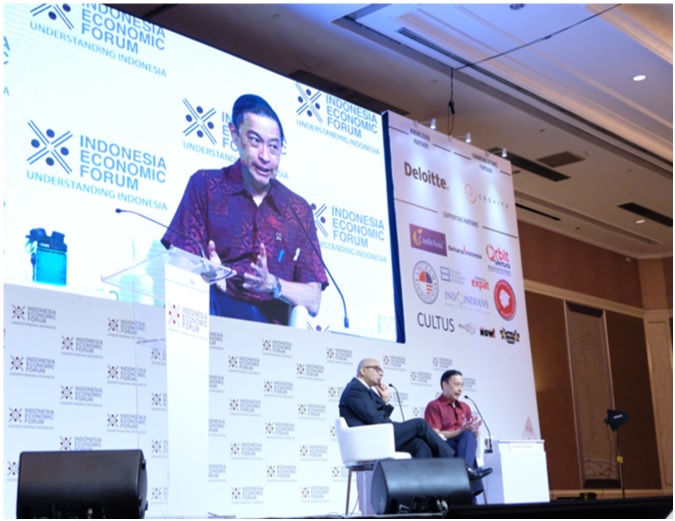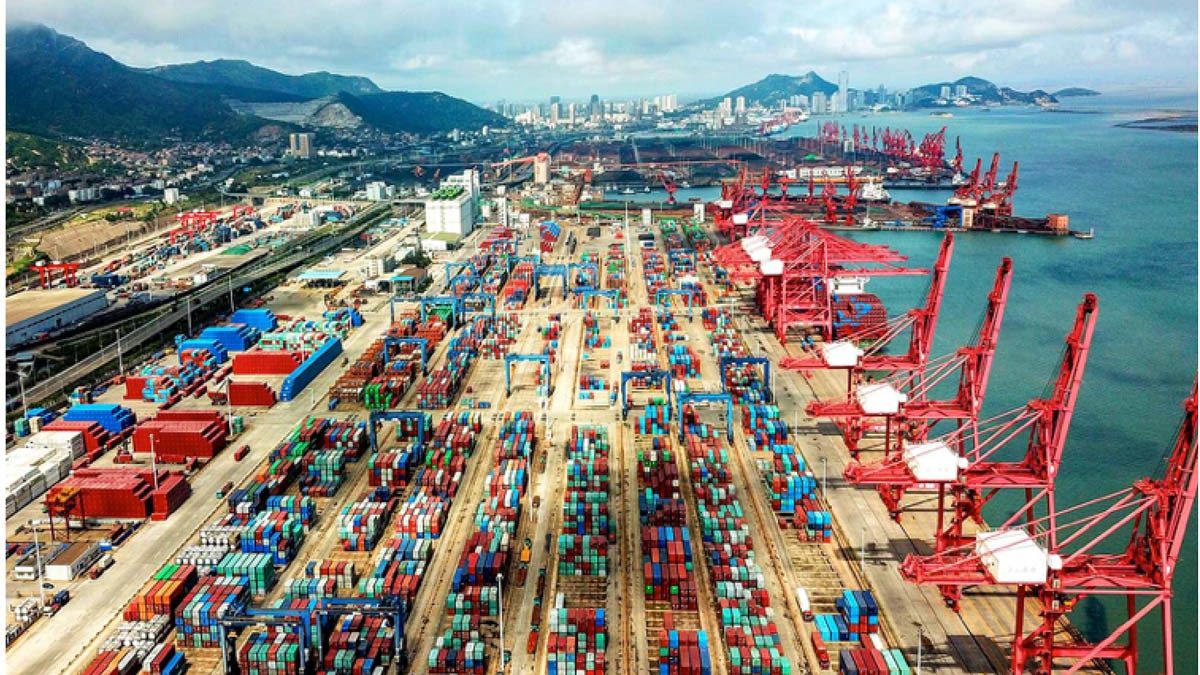Indonesia may have a silver lining against the backdrop of the US-China trade war and its efforts in preparation for the fourth industrial revolution, but only if it grasps the opportunity.
By ShoebKagda, Founder – Indonesia Economic Forum
With the trade war between the United States of America and China showing no signs of cooling, the global economy is starting to feel the heat. Major economies across the globe are staring at steep slowdowns in gross domestic product growth and even recession. For Indonesia, however, this could present an upside if it acts swiftly.
According to the World Trade Organization, the US-China trade war directly affects 3 % of global trade . The impact on the automotive sector, for example, which is intricately intertwined with the global economy could drag down car production hubs in Europe, Japan, South Korea and even Indonesia.
The trade war, however, could prove to have a silver lining for Indonesia’s manufacturing sector, according to a CNBC report (July 2019). Quoting the Nikkei Asian review, the report noted that the pace of companies moving production out of China is accelerating as more than 50 multi-national companies from Apple to Nintendo to Dell are rushing to escape the punitive tariffs imposed by the US.
Many of these companies are moving their production bases to Southeast Asia. Even Chinese companies such as TCL, an electronics manufacturer and tire maker Sailun Tire are relocating their production facilities to Thailand, Vietnam and other markets.
The Indonesian Advantage
Given its large labor pool and ample natural resources, Indonesia can benefit from the fallout of the trade war. But it needs to do more to attract such investments.
Historically, the manufacturing sector has played a key role in Indonesia’s economic development. According to Ministry of Industry in 2016, the manufacturing sector contributed 20.5% to GDP. The sector has averaged an above 4% growth over the past five years but the outlook over the next few years is neutral at best.

Recognizing the importance of the manufacturing sector, the Jokowi government has launched “Making Indonesia 4.0” roadmap and identified five priority sectors: food and drinks, automotive, textiles, electronics and chemicals.

Industry minister Airlangga Hartarto noted recently that his ministry is confident that the manufacturing sector’s contribution to GDP could touch 25% in the near future. The government is targeting greater investments in the auto industry, especially electric vehicles (EV) and electronics. The minister added that Apple will set up three centers in Indonesia over the next couple of years; a clear sign that global manufacturers see Indonesia as a new production base.
Chairman of the Investment Coordinating Board, Thomas Lembong told the IEF Insight Report in an exclusive interview that the relocation of the supply chain out of China will create new opportunities and drive greater investments into Indonesia.

“Clearly the relocation of supply chains out of China to around the world is something that happening and would have happened even without the current trade war,” he said. “This is because the Chinese labor force started contracting around 2013 and continues contracting every year due to demographics. “
He added that he expects to see the revival of demand for industrial estates in Indonesia as more factories move out of China and into Southeast Asia. “China is giving us back all those labor intensive low-technology factories that 25 years ago it took away from us.”
As China’s manufacturing sector moves up the value chain – transitioning from being a manufacturer to being a factory investor, the challenge and opportunity for Indonesia is not just to attract low-end manufacturing but also new technology. It could even possibly leapfrog the lifecycle, as we witnessed with in the fin-tech space.
Time To Act, Not Hope
If Indonesia hopes to attract greater manufacturing investments, it will need to do more to upgrade skill levels and production processes. According to the most recent World Economic Forum’s Future of Production Readiness Report – which assesses the readiness of 100 countries for the 4th Industrial Revolution – Indonesia’s structure of production scored 5.41 out of 10; which is in the lower ends as measured by two factors: (economic) complexity and scale.
Complexity is a measure of the economy’s knowledge as expressed in the uniqueness of its products while scale assesses both manufacturing output and the value it adds to the economy. But manufacturing is only one aspect of how ready a country is for the 4th Industrial Revolution.

Indonesia does have some great manufacturing companies such as Pan Brothers, which is the world’s largest garment exporter. Anne Patricia Sutanto, vice president director of Pan Brothers knows what it means to compete on the world stage and establish strong supply chains. And she has a message for the government:
Anne Patricia Sutanto, Vice-President Director of Pan Brothers: “Everyone can talk about attracting more investments from China but the reality is if the government wants to focus on some quick wins, they need to detail the supply chain,” she noted. “We must know what can hurt the supply chain and can benefit the supply chain.”
She added the government must use all the ammunition in its arsenal, as China is doing to win. For example, China has allowed its currency to weaken even as it slaps greater tariffs on US goods in retaliation against US tariffs on Chinese goods.
“The government must also reverse some regulations that have made Indonesia’s manufacturing sector less competitive vis-à-vis other regional countries. These include emending the current tax regime and labor laws.”
“The risks cannot only be borne by the private sector,” she added. “We have done all we can. Now we need the cabinet to act along with parliament to improve our investment and business climate.”
In what she described as the “Battle of Wits” by business owners, Anne noted that all Indonesian manufacturers should adopt an export mindset if they are to survive. “We must be cost conscious and not depend on anti-dumping laws to protect us. If you can export, even-though margins are thin, you will survive domestically.”
In a world of rapidly accelerating change, open systems will win. Countries that remain open and competitive will succeed as they will be able to respond faster to changing conditions. Indonesia must also attract not just safety -first investors but high IQ risk takers who can move ahead of the curve.
The window of opportunity will not stay open for long. Indonesia must act fast and decisively if it hopes to benefit from the ongoing trade war and revive its manufacturing sector.
Additional reporting by Novilia Sutijono
Currency quoted in this article is in USD.

